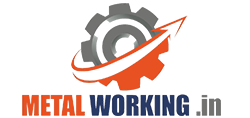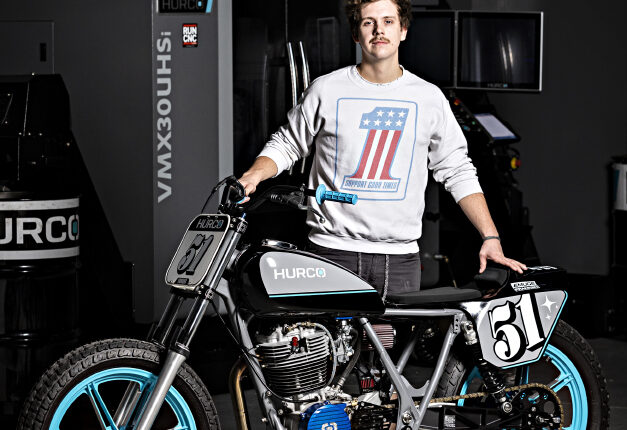Hurco: Yamaha SR500 Rebuilt By Hurco Engineer
THERE’S NOTHING UNUSUAL about building a custom motorcycle with the primary purpose of taking it to a show. But what if the show in question has absolutely nothing to do with custom motorcycles? That’s a cool twist.
This sharply styled Yamaha SR500 flat tracker is the pet project of 27-year-old Maxime Fontvielle. He’s an application engineer at Hurco France—a career he got into thanks to a love of two-wheelers.
“When I was a teenager,” he tells us, “I was passionate about mopeds. While looking at the forums, I saw people making parts for competitive 90s mopeds and I thought, that’s what I want to do! I went through the normal apprenticeship training, then I arrived at Hurco.”
Maxime stumbled upon a wrecked Yamaha SR500 for just €100 and had a bright idea: rebuild it as a showpiece for his company to take to machine industry trade shows.
“Every year at the trade shows,” he says, “all the manufacturers show their new machines in action with classic parts from the aviation industry, etc. I thought it lacked a bit of passion and soul.”
“I wanted to make a beautiful bike with machined parts on it. I proposed to my boss that I prepare this bike as a real flat track beast. American discipline, American company… this is a match!”
Maxime’s boss wisely gave the OK—but there was a tight three-month deadline before the next show. So Maxime decided to divide and conquer. He entrusted the engine rebuild to the Parisian workshop, Machines et Moteurs with a very specific checklist, while he focused on the chassis.
The motor came back with a 540 cc kit and a heck of a lot of internal fettling. Highlights include an upgraded camshaft, improved oil flow, a Mikuni TMR36 carb, and a K&N filter. There’s also a new header and reverse cone megaphone muffler, both from SC-Project in Italy.

Maxime’s first job on the chassis was to install a 19″ rear wheel to match the front. He ended up sourcing a second SR unit and machining it to take a sprocket and a 300 mm brake disc. Then he machined custom wheel axles, adapted the front to run with bigger bearings, and lightened both wheels by ‘splitting’ the spokes.
There’s no brake on the front, but there’s a Brembo caliper and master cylinder outback, linked by a braided stainless steel line. Since Maxime was upgrading the bike from a rear drum brake, the whole arrangement is custom—right down to the caliper bracket and foot controls.
Upfront is a set of Yamaha XJR1200 forks, with a custom steering stem, yokes, and bar risers. Outback is a new set of shocks, hooked up to a custom swingarm—a part that Maxime’s boss requested, to show off Hurco’s machines’ capabilities. Made in partnership with the CAD/CAM company Mastercam, it’s tailored specifically for this bike with little details like a caliper support mount, and paddock stand supports. Wherever possible, Hurco branding is milled into components using the DXF feature.

There are several subtle, custom-tailored items on this Yamaha. From the engine covers to the chunky footpegs, to the entire kickstart lever and pedal, Maxime has gone to town without going over the top. Look even closer, and you’ll spot more, finer details—like the logos etched into the sides of the yokes.
High up, there’s an Airtech Streamlining tailpiece, matched to the OEM fuel tank, a front number board, and a set of flat track bars. For the livery, Maxime’s brother, a designer at the Austrian design powerhouse Kiska, helped out with over thirty mock-ups, all with Hurco branding.
Everything is now finished in black and grey, with two shades of blue for accents (one for paint, and one for anodizing). Another friend, Jerome, took care of the decals; a nod to all the partner companies that worked on the project.
Not only does this bespoke design SR500 look super-sharp, but it’s also reportedly a treat to ride. Maxime plans to get sideways with it on a flat track soon. But until then, its main job is to put Hurco’s next trade show booth head and shoulders above the rest. With almost every component manufactured as a one-off on Hurco machines, there’s plenty to discuss.
This content was originally published on the Hurco website.

